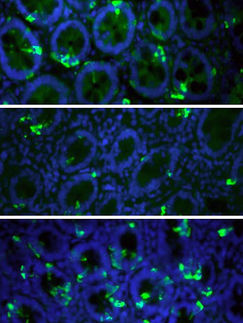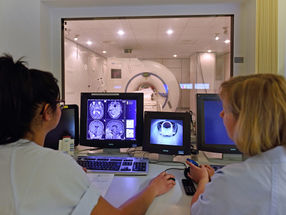Study suggests early exposure to antibiotics may impact development, obesity
Advertisement
Researchers at NYU School of Medicine have made a discovery that could have widespread clinical implications, potentially affecting everything from nutrient metabolism to obesity in children.
Since the 1950's, low dose antibiotics have been widely used as growth promoters in the agricultural industry. For decades, livestock growers have employed subtherapeutic antibiotic therapy (STAT), not to fight infection or disease, but to increase weight gain in cattle, swine, sheep, chickens and turkey, among other farm animals.
First author Ilseung Cho, MD, MS, and colleagues set out to reveal how antibiotics were acting on the body to create this effect, hypothesizing that low doses of the drugs may alter the composition and function of the bacteria in the gut. The resulting study, appearing in Nature, confirmed their theory about the gut microbiome, the term used to refer to the community of bacteria that lives in the stomach, and raises new questions about how manipulating it can impact metabolism and disease in the body.
The researchers administered STAT to normal mice and observed that the mice receiving antibiotics developed increased fat mass and percent body fat. After about six weeks, the mice that received antibiotics had gained about 10 to 15 percent more fat mass than the mice that did not receive antibiotics. The researchers also noted that bone density was significantly increased in STAT mice early in development and that particular hormones related to metabolism were affected by antibiotic exposure, as well.
"By using antibiotics, we found we can actually manipulate the population of bacteria and alter how they metabolize certain nutrients," said Dr. Cho, assistant professor of medicine and associate program director for the Division of Gastroenterology at the School of Medicine. "Ultimately, we were able to affect body composition and development in young mice by changing their gut microbiome through this exposure."
Dr. Cho added that the scientific community is only now beginning to understand just how complex the microbiome is and how it affects health and disease. With a better understanding about the interactions between the microbiome and hosts and how these interactions can be manipulated, he and his colleagues believe the finding has the potential to affect a wide array of conditions ranging from childhood obesity to metabolic syndrome in adults.


























































